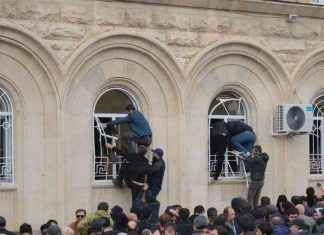For now, however, the economic analyses by different financial institutions such as the European Central Bank and the Independent Authority (AIREF), are optimistic for the future, but they do not rule out a recession. A recession is defined as more than two consecutive quarters with negative GDP (Gross Domestic Pro). This scenario is unlikely, even though the slowdown seems to be. This means that Europe doesn’t grow as much this year as it was expected.
These are the conclusions drawn by representatives from both institutions on Wednesday. They were always closely connected to developments in Europe and Russia’s relations. The umbilical cord connecting both extremes is still gas, which is the center of the conflict in Ukraine. The EU economy will be affected if Vladimir Putin, Russian President, cuts off the water supply. He will, but to a lesser or greater extent depending on how the Kremlin implements that energetic measure following the summer.
On Wednesday, the vice president of ECB stated that the disruption of Russian gas to Germany could cause a recession in Germany, which could then “drag” the entire eurozone. Luis de Guindos clarified that the central scenario of the ECB -it will meet on the 21st to announce its first rate increase in the eurozone since 2014 – doesn’t address the possibility of the European economy entering a recession. However, there is a “significant” economic slowdown which, together with high inflation, creates a “very complicated” scenario in the next months. They will be extremely complex for both the European and global economies due to high inflation combined with signs of economic slowdown. He indicated that we have already seen the effects of high inflation on the consumption of European families.
According to the ECB, the US will experience a less severe recession than Europe before returning to growth. This is because the most direct effects of the Russian invasion in Ukraine can be seen in the Old Continent.
The ECB has begun to normalize monetary policies to address this situation. Guindos says that the September rate hikes of 25 basis points and one in July were respectively increased by 25 basis points. If the inflation situation does not change, it will be a point. It is a normalization in monetary policy that adjusts for the high inflation in eurozone, clearly above 8%. This is not just food and energy production, but is also much more broad-based,” has been stated.
Cristina Herrero (president of the Independent Authority for Fiscal Responsibility, AIReF) says that there is no immediate possibility of a Spanish recession. However, she expressed concern about the impact of winter on gas supplies. She assured that she did not consider the possibility in her central scenario at AIReF.
Herrero predicts that Spain’s growth will be “significant” in 2022, based on the positive development of the tourism sector and the service sector. The Recovery Plan is also expected to have an impact, despite being criticized for slow execution and deployment.
It has, however, warned that some of the risks it has been warning about over the past few months (bottlenecks and energy) are already materializing. Accordingly, it will reevaluate its downward forecasts in its next Report on July 19 as well as many analysts.








